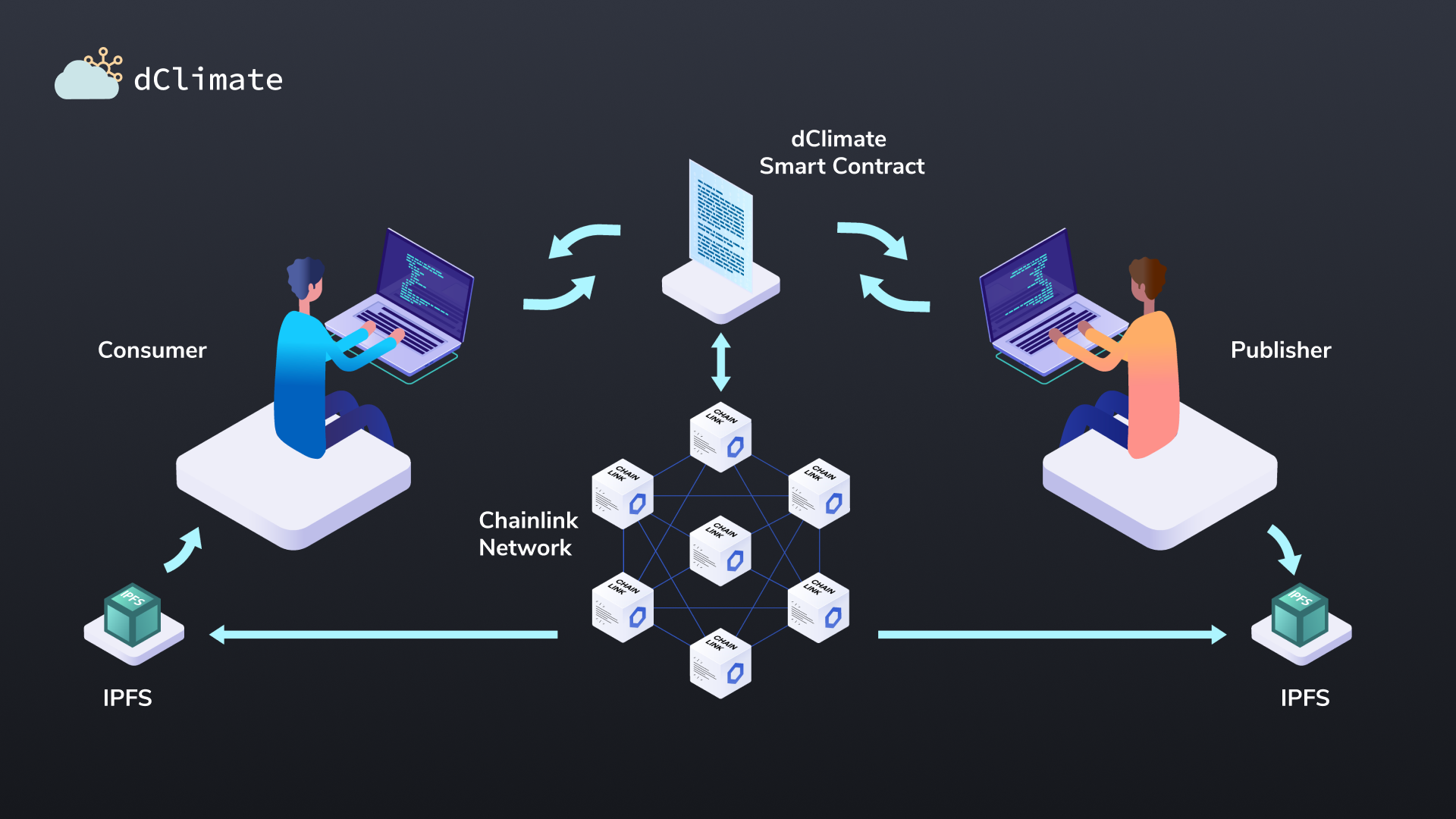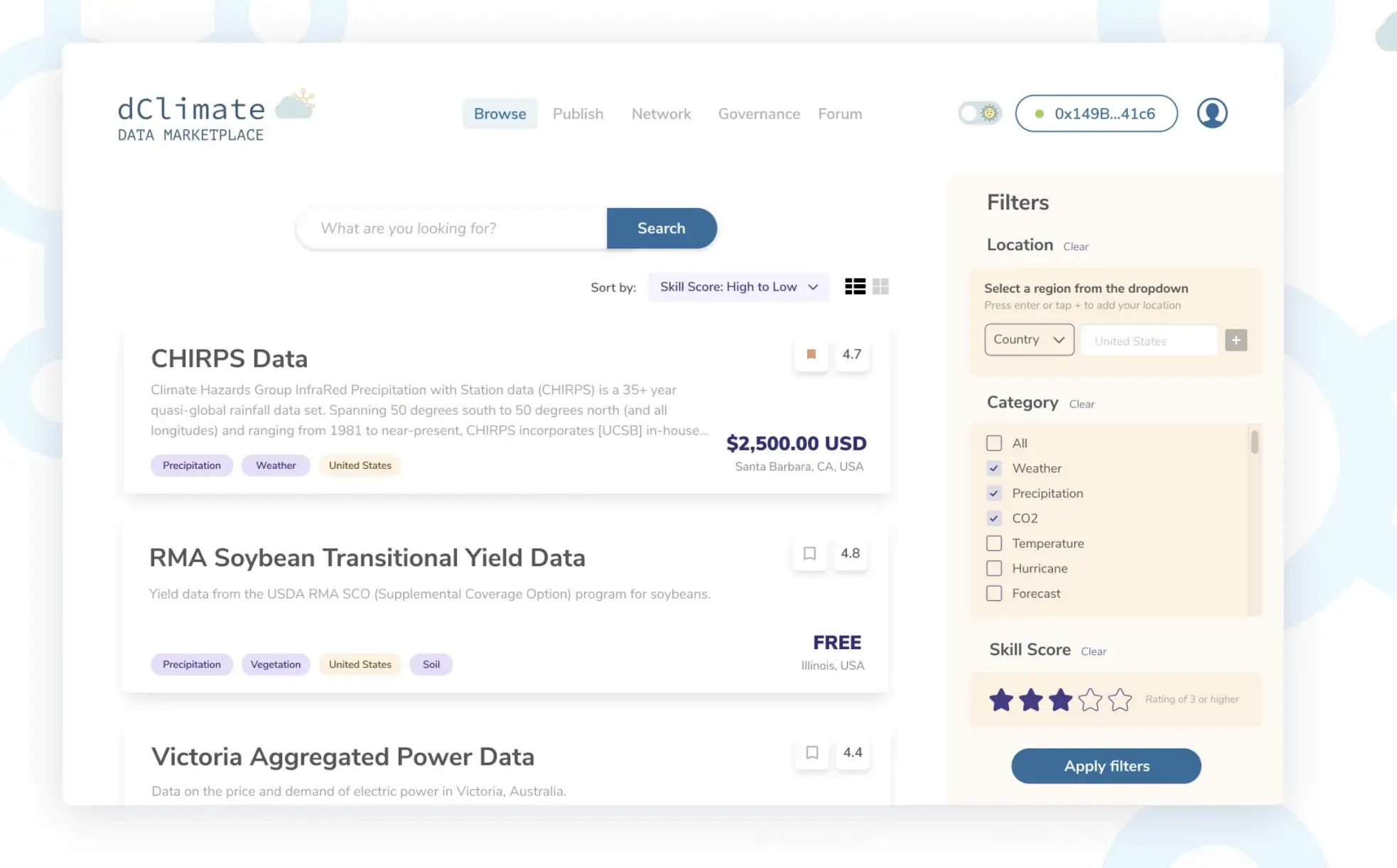The Importance of Transparent, Decentralized Data Validation

How the dClimate Data Marketplace Makes It Easy for Consumers to Shop for Validated, Reliable Climate Information
A question we often get is how do we ensure the data on dClimate is reliable, accurate, and transparently validated? How does the dClimate marketplace help consumers shop for data?
The main feature of our climate data ecosystem is the data marketplace. It allows participants to simply get data and share data. Consumers can easily shop for what they need using our simple UI and publishers get a direct-to-consumer mechanism for data monetization. The open marketplace assigns impartial “skill scores” to all data and forecasts to make it easier for consumers to shop for data. On-chain data validation is powered by the dClimate DAO and Chainlink’s decentralized oracle network.

The dClimate DAO proposes and votes on the validation scripts to determine “skill scores.” When approved by the community, these validation scripts are deployed as standalone Chainlink adapters. When the adapters are created, they are connected to Chainlink’s decentralized oracle network, which gives dClimate an easy and trusted way to validate and distribute data from publishers in the marketplace.
The validation scripts to assign “skill scores” to datasets are open to anyone to review to allow for independent determination that the skill assessment is thorough and fair. Having impartial “skill scores” gives consumers a reference point to help them understand the accuracy and reliability of the dataset they are getting, with all of this being done in a decentralized and verifiable fashion. Traditional climate data sources don’t give consumers this kind of reference point to help them understand what they are getting. And it certainly isn’t done in a manner that is decentralized, transparent, and validated by trusted, independent oracles like Chainlink.
dClimate’s climate information ecosystem aims not only to make climate information more accessible, but to also make data more reliable and accurate. Having verifiable, trustless systems for validating data on-chain is critical for achieving this and for creating a climate information ecosystem that is transparent and user-friendly for participants.

